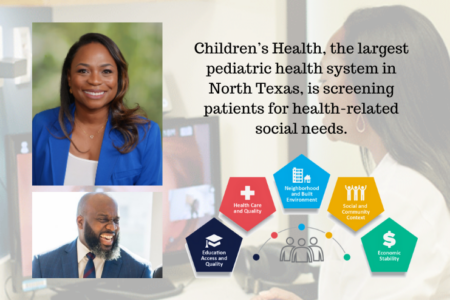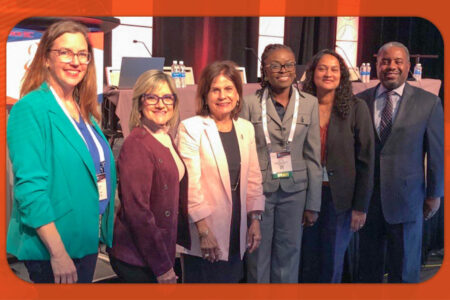Share On Social!
Financial literacy can help us understand wealth and the economic opportunities available to us.
Latinos face many barriers to economic opportunity, like systemic and historic discrimination, generations of inequity and wealth gaps, and a lack of access to resources on financial literacy.
One business is stepping up to help teach younger Latinos about financial literacy.
SUMA Wealth, a financial services company focused on Latinos, announced a multi-platform financial education initiative called SUMA Academy to empower Latino youth to break generations of wealth inequity.
“Empowering young Latinos with financial knowledge is the key to reducing the wealth gap,” said Beatríz Acevedo, CEO and co-founder of SUMA Wealth, according to a press release. “They share their learning with friends, family, and their entire community. The Latino Youth Effect is a strong knowledge multiplier. When you teach one, you reach many.”
Because April is Financial Literacy Month, SUMA Academy will host free events and webinars this month to help provide financial education to young Latinos.
What is SUMA Academy’s New Financial Education Initiative?
SUMA Academy aims to help young Latinos with personal finance through creating culturally relevant, easy-to-digest material.
Starting on April 15, 2021, SUMA Academy will launch on-demand courses.
They plan to release the following financial courses over the month:
- Level Up Your Crypto Game (April 15): How to start investing in cryptocurrencies like bitcoin, presented by Nadia Álvarez from the Maker Foundation
- Become Financially Free! (April 15): A seminar on financial independence, hosted by Marco Antonio Regil, a television personality, public speaker, author, and financial inclusion activist
- Maximize Your Chances of Getting Your Business Loan Approved (April 29), presented by Patty Juarez, National Diverse Segments director at Wells Fargo
- Become A Certified Minority-Owned Business and Help Your Business Grow (April 29), presented by Salvador Enríquez, Supplier Diversity Manager at Wells Fargo
To create SUMA Academy, SUMA Wealth partnered with financial organizations such as the Wells Fargo Foundation and the Maker Foundation.
They’ve also received support from Latino-focused businesses, like the Stanford Latino Entrepreneur Initiative and Latino Business Action Network (LBAN).
“LBAN applauds the leadership of Beatríz and the efforts of SUMA Wealth to provide financial education and literacy to potential future entrepreneurs,” said Jennifer Garcia, LBAN Interim CEO, according to a press release.
The co-founders of SUMA Wealth want to elevate Latinos and their financial livelihoods. Latinos have the potential to add $1.6 trillion to the economy by 2030, according to a report by McKinsey & Company.
The report also stated that Latino-owned businesses are overrepresented in the business sectors that were most hurt by COVID-19 – leisure and hospitality, retail trade, transportation, and construction.
“Supporting Latinos is an investment in our country. This group got the worst of the pandemic but offers the best route to recovery. We’re invested in the wellbeing of this community,” said Xavier A. Gutiérrez, the other SUMA Wealth co-founder, according to a press release. “They’re going to be drivers of the economic recovery and we applaud collaborators like the Wells Fargo Foundation and the Stanford Latino Entrepreneur Initiative who want to support Latinos on their financial journey, too.”
To register for the free events or learn more information about SUMA Academy, visit their website.
Why is Financial Literacy Important for Latinos?
Many Latinos face financial struggles.
Latino families are more likely to live in poverty than white families.
“Child poverty rates are more than twice as high for Latino children than white children (23.7% vs 8.9%). Poverty’s material hardships ─ difficulty meeting basic food, medical, housing, and transportation needs ─ lead to worse health and life outcomes,” according to a Salud America! research review.
Latino families are also burdened by high housing costs, eviction, and displacement.

“The percentage of Latinos who are ‘housing cost burdened,’ spending 30% or more of household income on housing costs, grew from 42.4% in 2000 to 56.9% in 2015. More Latinos rent their homes (54%) than their White peers (28%). They also experience significantly higher rates of eviction and involuntary displacement,” according to a Salud America! research review.
Additionally, the COVID-19 pandemic has exacerbated economic difficulties for Latinos. When unemployment and widespread layoffs were at their peak in 2020, Latinos suffered the most.
“Around half (49%) of Hispanics say they or someone in their household has taken a pay cut or lost a job—or both—because of the COVID-19 outbreak, compared with 33% of all U.S. adults,” according to a survey from the Pew Research Center. “Among both Hispanics and the wider public, more people say someone has experienced a pay cut or a reduction in work hours than say someone was laid off or lost a job (40% vs. 29% among Hispanics, 27% vs. 20% among all Americans).”
While many of these issues are systemic and due to historical issues like racial/ethnic discrimination, increasing financial literacy can help alleviate the burden of financial struggles for Latinos and eliminate the wealth gap.
Yet despite the need for personal finance education, many students in low-income communities and communities of color don’t have access to it.
“According to the Next Gen Personal Finance’s report on the 2018–19 school year, 1 in 6 U.S. high school students was required to take at least one standalone semester of personal finance for graduation. Meanwhile, 3.9% of students from low-income schools (defined as one that has at least 75% of students eligible for free or reduced-price lunch), were required to take a personal finance semester to graduate,” write Sharon Epperson and Michelle Fox for CNBC.
SUMA Academy hopes their financial literacy initiative can be a part of changing that.
How Else Can We Help Latinos?
Everyone deserves equitable financial opportunities to prevent the effects of poverty and the burden of high costs.
Part of that means improving financial literacy for Latinos and other people of color who disproportionately face financial struggles.
Another part of that means addressing systemic injustices and discriminatory policies that have led to inequities for Latinos.
One way to help enact systemic change is by helping your city to declare racism a public health crisis.
Download the free Salud America! “Get Your City to Declare Racism a Public Health Crisis Action Pack”!
The Action Pack will help you gain feedback from local social justice groups and advocates of color. It will also help you start a conversation with city leaders for a resolution to declare racism a public health issue along with a commitment to take action to change policies and practices. It will also help build local support.
Explore More:
Understanding & Reducing PovertyBy The Numbers
23.7
percent
of Latino children are living in poverty



